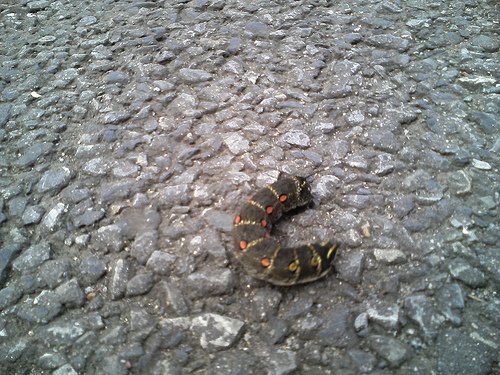No consideration of Japan is complete without the often-quoted-by-gaijin- who-are-experts-on-Japan phrase deru kui wa utareru (DE-ru KOO-ee wa oo-TAH-reh-ru), which translates as “the nail that sticks up will be hammered down.” It describes the tendency of Japan, especially the educational system here, to “hammer down” individuals that don’t fit in so that they’re brought in line with everyone else. While a classroom full of similar students would probably be easy for a teacher to manage, the idea that students with special talents — a child gifted in music or math — might be forced to “conform” to the larger group offends my American idealism. My first employer in Japan had a daughter who was born in the U.S. and grew up speaking mostly English before returning to Japan, but by the time she’d finished three years of Japanese high school, various social pressures (as well as some issues unique to the girl, no doubt) made her actively pretend to not understand English, even though I knew better. The Japanese are quite aware that their country isn’t very good at handling special cases, and in some instances a family with an exceptional child will emigrate to a country where the differences can be appreciated and encouraged. The great irony is that many of the most successful people in Japan have violated this rule and stood up as proud as any nail ever did, such as Softbank president Masatoshi Son, cybermall Rakuten founder Hiroshi Mikitani, and flamboyant former professional centerfielder Shinjo. The man who founded Honda stood out, too: as a boy, he wanted to learn how to swim, so he got the idea of swallowing small fish whole and jumping in the water while it was still flapping around inside his stomach.
this page for info on the show.















